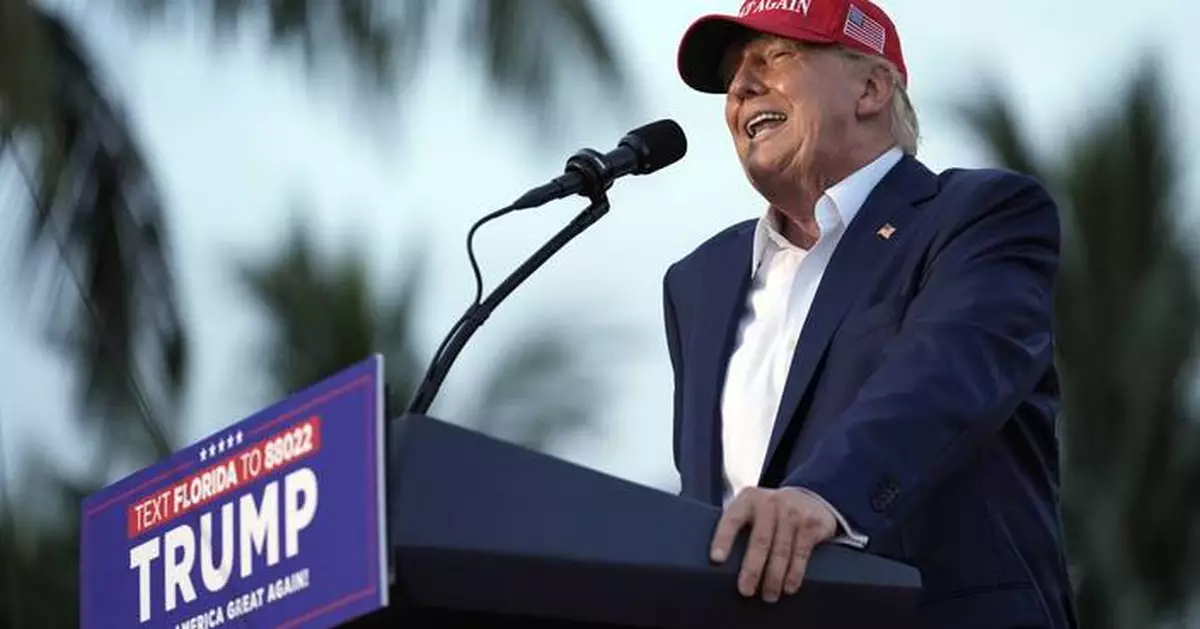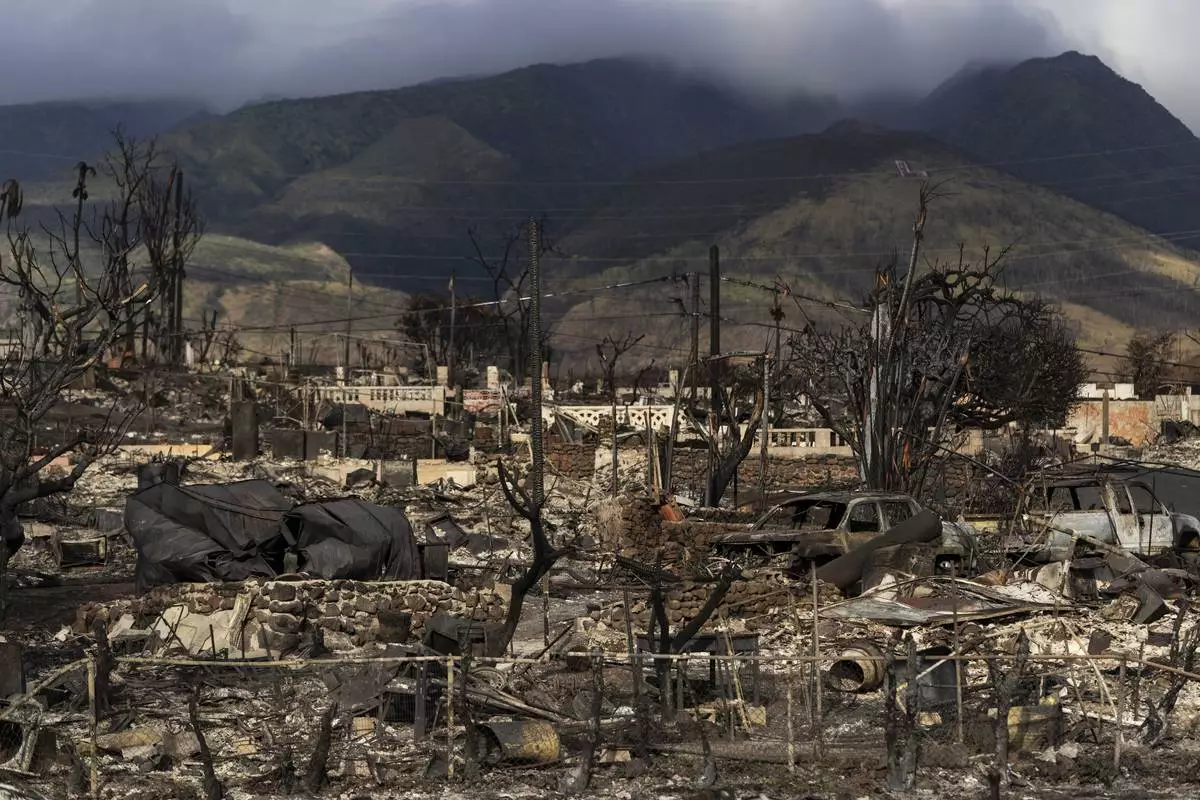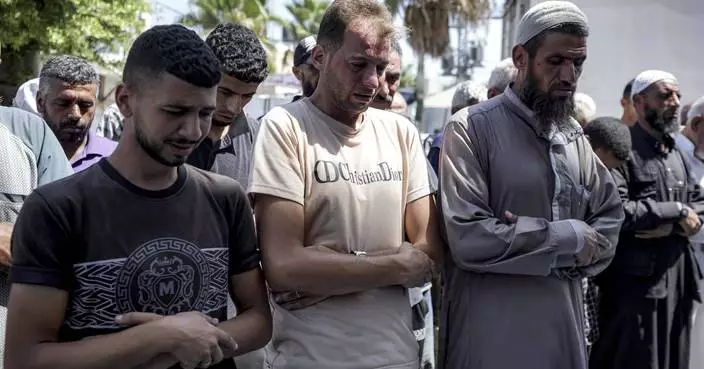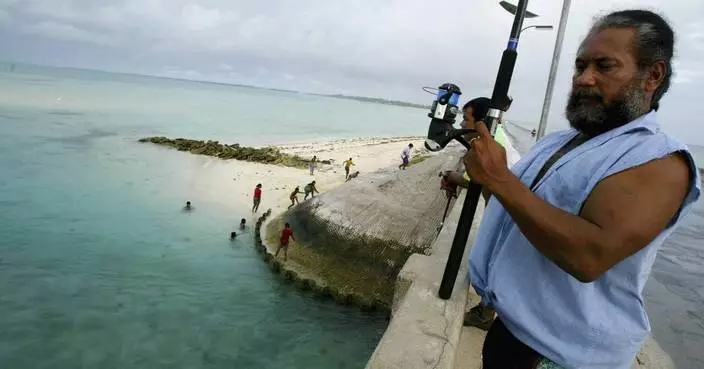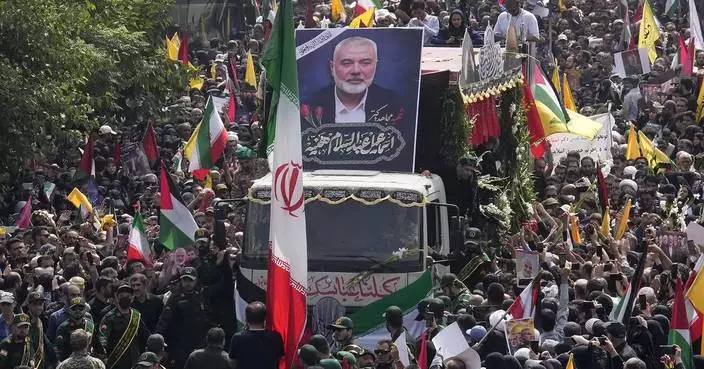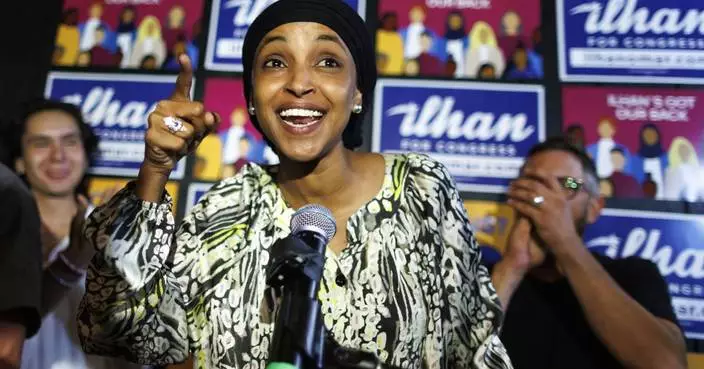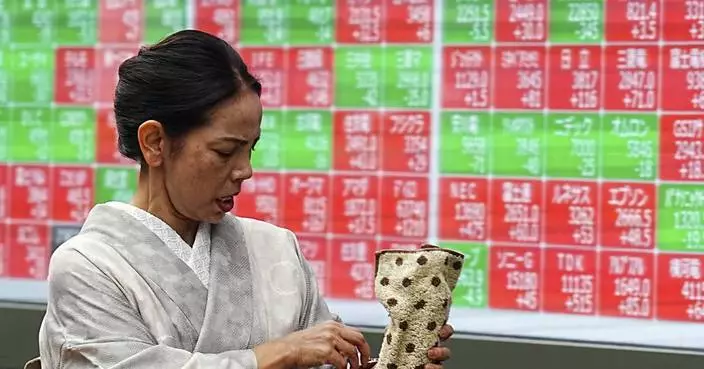NEW YORK (AP) — Donald Trump’s lawyers are imploring a New York judge to overturn his hush money conviction and dismiss the case, arguing his historic trial was “tainted” by evidence that shouldn't have been allowed because of the Supreme Court’s recent presidential immunity ruling.
In a court filing made public Thursday, the former president's lawyers expanded on their view that Manhattan prosecutors had rashly and wrongly hurried to try Trump while the high court was still considering his immunity claims.
“Rather than wait for the Supreme Court’s guidance, the prosecutors scoffed with hubris at President Trump’s immunity motions and insisted on rushing to trial,” Trump lawyers Todd Blanche and Emil Bove wrote. They urged Judge Juan M. Merchan “to address these injustices,” saying he was "duty-bound to do so in light of the Supreme Court’s decision.”
Trump became the first ex-president convicted of a crime when a jury found him guilty in May of falsifying records to cover up a potential sex scandal.
Trump's lawyers urged Merchan to toss out not only the jury’s verdict but the indictment, which would prevent prosecutors from retrying the case.
Merchan has said he’ll rule on the defense’s requests on Sept. 6 and will sentence Trump on Sept. 18, “if such is still necessary.”
The Manhattan district attorney's office has until July 24 to respond to the defense filing and declined comment Thursday.
The Supreme Court's July 1 immunity decision gave broad protections to presidents and insulated them from prosecution for official acts. It also restricted prosecutors from citing any official acts as evidence in trying to prove a president’s unofficial actions violated the law.
The Supreme Court did not define what constitutes an official act, leaving that to lower courts.
Hours after the opinion's release, Trump’s lawyers wrote a letter asking Merchan to set aside the verdict and to delay Trump's sentencing, which had been scheduled for Thursday.
Trump’s trial began April 15. The Supreme Court heard arguments in the immunity case 10 days later.
Trump was convicted on 34 felony counts of falsifying business records arising from what prosecutors said was an attempt to cover up a $130,000 hush money payment to porn actor Stormy Daniels just before the 2016 presidential election.
Daniels claims she had a sexual encounter with Trump in 2006. Trump denies it, saying at his June 27 debate with President Joe Biden, “I didn’t have sex with a porn star.”
He has vowed to appeal the conviction but would not be able to do so until he is sentenced.
Prosecutors said the Daniels payment was part of a broader scheme to buy the silence of people who might have gone public during the campaign with embarrassing stories alleging Trump had extramarital sex.
Trump denied any wrongdoing and said all the stories were false.
Trump’s former lawyer Michael Cohen paid Daniels and was later reimbursed by Trump. Prosecutors said Cohen — with Trump’s knowledge — disguised the reimbursements by submitting monthly invoices for retainer payments as Trump’s personal lawyer. Trump’s company logged the payments to Cohen as legal expenses.
Trump’s lawyers argue that jurors shouldn’t have been allowed to hear about matters including his conversations with then-White House Communications Director Hope Hicks, nor testimony from another aide about his work practices.
Blanche and Bove also pointed to prosecutors’ use of Trump’s 2018 financial disclosure report, which he was required as president to file for public disclosure. A footnote on the form mentioned that Trump reimbursed Cohen in 2017 for unspecified expenses the year before.
The defense wrote that prosecutors tried “to assign a criminal motive” to some actions Trump took while in office — by arguing, for example, that some of his 2018 tweets were part of a “pressure campaign” to keep Cohen from turning on him.
The Supreme Court’s decision “forecloses inquiry into those motives,” the defense argued.
Jurors were shown multiple 2018 Trump tweets about Cohen, which prosecutors portrayed as efforts to pressure Cohen not to cooperate with authorities and then punish him when he did.
In Thursday’s filing, Trump’s lawyers countered that the tweets were “communications with the American people regarding matters of public concern bearing on President Trump’s credibility as the commander-in-chief.”
The question of what jurors are entitled to hear about a president's conduct divided even the conservative members of the Supreme Court responsible for the majority opinion.
Justice Amy Coney Barrett, in a separate concurrence, wrote that the Constitution does not require juries to be blinded “to the circumstances surrounding conduct for which Presidents can be held liable” and suggested that it would needlessly “hamstring” a prosecutor’s case to exclude from trial “any mention of the official act” in question.
Trump’s lawyers had previously invoked presidential immunity in a failed bid last year to get the hush money case moved from state court to federal court.
U.S. District Judge Alvin Hellerstein rejected Trump’s claim that allegations in the hush money indictment involved official duties, writing in July 2023, “The evidence overwhelmingly suggests that the matter was a purely a personal item of the president — a cover-up of an embarrassing event.”
Later, Trump’s lawyers sought to delay the hush money trial until the Supreme Court ruled on his immunity claim. Merchan denied the request, declaring it untimely because it came well after a deadline for pretrial motions.
Trump’s lawyers never raised presidential immunity as a defense in the hush money trial, but they tried unsuccessfully to prevent prosecutors from showing the jury evidence from his time in office.
The ongoing immunity fight and ensuing sentencing delay have spared Trump the damage of a potential prison sentence, probation, fine or other punishments just days before he is to accept the Republican nomination for president at the party’s convention next week in Milwaukee.
The postponement avoided the potential split screen of Trump being sentenced while Democrats continued to debate President Joe Biden’s viability as a reelection candidate after his dismal debate performance last month.
Falsifying business records is punishable by up to four years behind bars. Other potential sentences include probation, a fine or a conditional discharge that would require Trump to stay out of trouble to avoid additional punishment.
If Trump were to be sentenced to jail or prison, he could be allowed to remain free while he appeals. Because it is a state case, Trump would not be able to pardon himself if he were to be elected president again. Presidential pardons apply only to federal crimes.
__
Associated Press writer Eric Tucker in Washington contributed to this report.
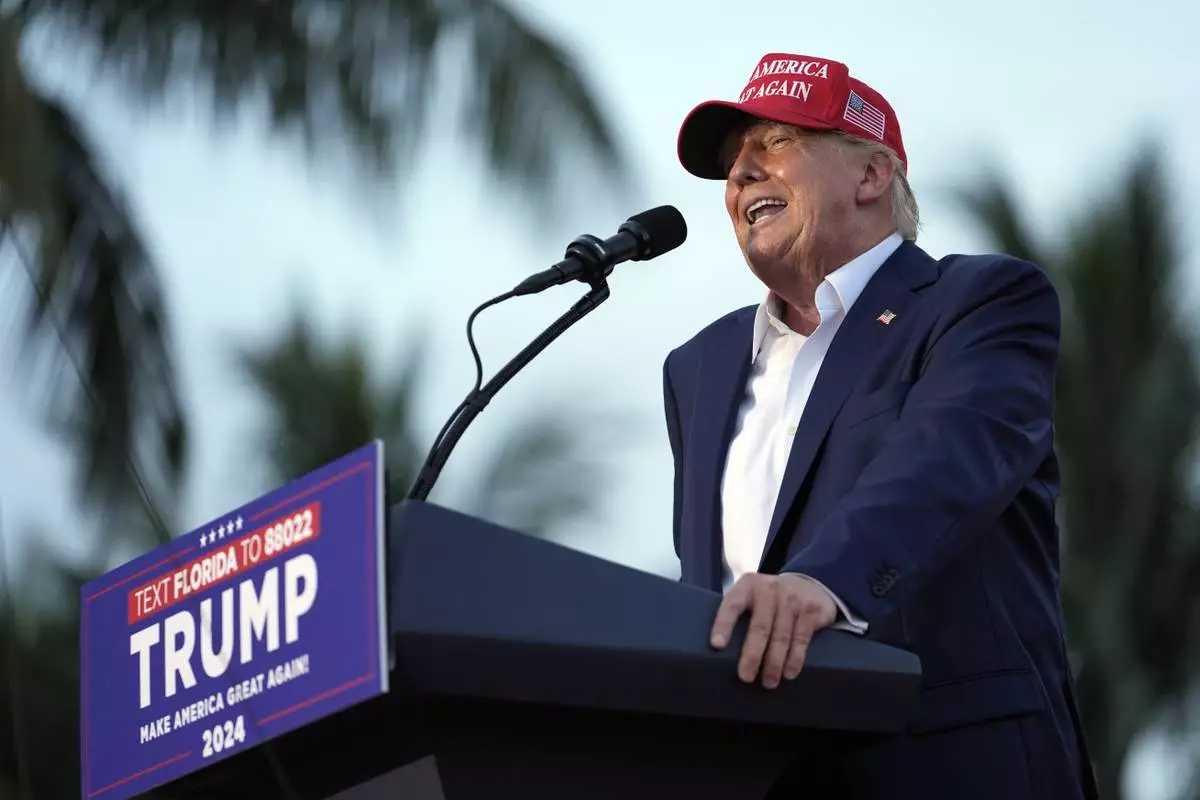
Republican presidential candidate former President Donald Trump speaks at a campaign rally at Trump National Doral Miami, Tuesday, July 9, 2024, in Doral, Fla. (AP Photo/Rebecca Blackwell)


